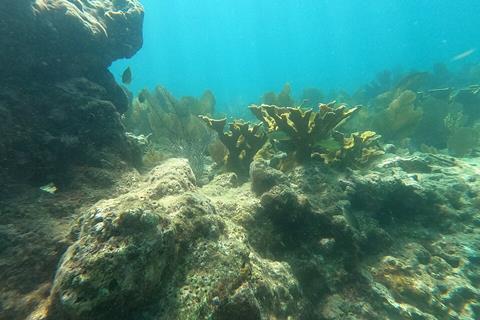The record-breaking 2023 marine heatwave has killed nearly all of Florida’s critically endangered Acropora coral colonies, marking the species’ functional extinction in Florida’s Coral Reef (FCR), researchers report in Science.

The findings sound a dire warning for the future of coral ecosystems in our rapidly warming oceans. The increasing frequency and intensity of extreme climate events, such as marine heat waves, are severely undermining the health, structure, and resilience of ecosystems worldwide.
Coral reefs, among the most heat-sensitive marine environments, have suffered decades of mass bleaching and mortality due to rising ocean temperatures. Here, Derek Manzello and colleagues evaluated the effects of the 2023 marine heatwave on Florida’s critically endangered reef-building Acropora palmata (elkhorn) and Acropora cervicornis (staghorn) corals.
Record ocean temperatures
According to Manzello et al., during the unprecedented event, Florida’s Coral Reef (FCR) experienced the highest ocean temperatures ever recorded in the region, peaking at 32.3 degrees Celsius in July 2023. As this heatwave persisted, the authors tracked the health of 52,356 wild and restored Acropora coral colonies across the ~560-kilometer length of FCR.
They found that by March 2024, between 97.8 and 100% of A. palmata and A. cervicornis coral colonies in the Florida Keys and Dry Tortugas had died due to prolonged and extreme thermal stress.
Coral mortality was lower (37.9%) in the northerly reaches of the FCR, likely due to the cooler ocean waters off southeast Florida.
Functional extinction
Manzello et al. argue that the 2023 marine heatwave marked the functional extinction of Caribbean Acropora species in Florida, ending a reef-building legacy in the region that has occurred over the last 250,000 to 500,000 years. The findings may also portend the onset of a Caribbean-wide extinction of these thermally sensitive species.
“Aggressive interventions, such as introduction of heat-tolerant genotypes and genetic diversity from outside Florida, as well as algal symbiont manipulation, might be the only means to maintain any Acropora populations in Florida,” write the authors.







No comments yet